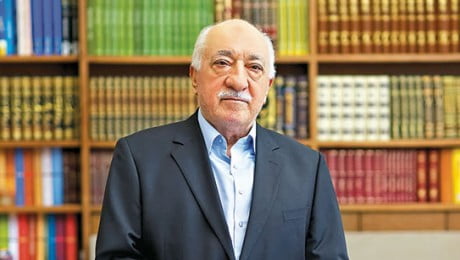Opinions

The consequences of tyranny never change
Certain groups devised an imaginary and ambiguous crime against the Hizmet movement based on claims of a so-called “parallel state.” However, this is such a vague crime that if those who blame the Hizmet movement for establishing a “parallel state” are accused of the same thing, these charges will seem well-founded, because of ambiguity of the claims.

Not appearing in the worst selfie in history
For a while now, Prime Minister Recep Tayyip Erdoğan has been busy with shutting down Turkish schools — affiliated with the Hizmet movement, which is inspired by the teachings of Islamic cleric Fethullah Gülen — in 160 countries which were opened thanks to the small contributions and tears of the people of this country.

RELIABLE ENVIRONMENT : GULEN INSPIRED SCHOOLS
Gulen Inspired Schools provides an environment where they trust in a clear long-term gain. One of the main factors behind the success of these schools is commitment and dedications that have been presented by teachers and managers. One common characteristic of the staff is the commitment to the common goal to make a positive impact to the society.

Election results and the Hizmet movement
Unlike the perception that Prime Minister Recep Tayyip Erdoğan tried to create, with the help of tremendous media power, the contention in the run-up to the elections was never between the ruling Justice and Development Party (AKP) and the Hizmet movement (or the so-called foreign forces that colluded with it).

Is Hizmet being subjected to genocide? (2)
In a recently leaked voice recording, which was not denied by those involved in it, Erdoğan’s son, Bilal, tells his father that an operation should be launched against the Hizmet movement. All these incidents indicate that the ruling party has used and will use laws in accordance with Erdoğan’s plans. Thus, a group cannot be destroyed solely with mass killings. It can be destroyed also with unfair and unlawful practices by passing specific laws, as we saw in many cases in the past.

Is Hizmet being subjected to genocide?
Indeed, the word genocide brings to our minds mass killings and relocations of members of a race, usually under war-like conditions. Yet, genocide is not a war crime. It is not a type of crime committed against a specific race. Rather, it has wider connotations. This crime may be committed against a specific group, without massacring them and in a peaceful setting.

Individuals can force change
Instead of Erdoğan’s accusations that the Hizmet movement had plotted to unseat his government, couldn’t it have been a handful of good men and women within the bureaucracy, i.e., the judiciary and the police, who leaked the investigation documents on Dec. 17 to the public to prevent these crimes from being covered up?

Why is the government freeing bloody murderers?
The government is continuing to act in panic. In the last couple of months, every single step it has taken has somehow been related to the graft probe, and they all are being taken to suffocate the corruption investigation. The government is freeing Ergenekon suspects willingly and on purpose to create an alliance against the so-called “parallel state,” as they call the movement inspired by Fethullah Gülen.

What else should Gülen say?
Fethullah Gülen’s stance on corruption and anti-democratic practices has never changed. Osman Şimşek, the editor of herkul.org, which broadcasts and publishes Gülen’s speeches, recently published a letter that Gülen sent to Erdoğan in May 2006. In the letter, Gülen warns the prime minister that his government had begun to deviate from its democratic line.























